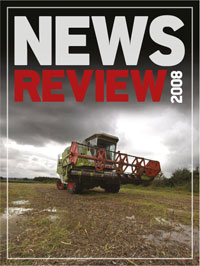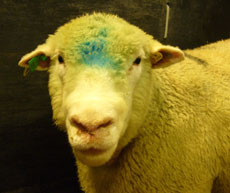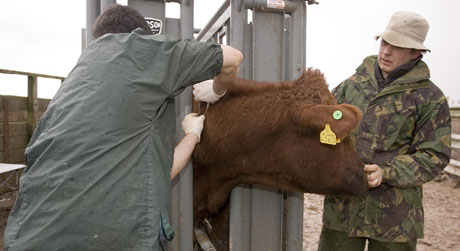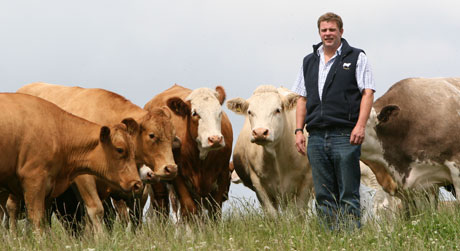Review of the year: Livestock diseases devastate Europe

In the final instalment of our review of 2008, we look at how animal diseases hit the headlines over the past year.
Bovine TB has rampaged out of control in 2008, with almost 40,000 cattle likely to be slaughtered by the end of December.
Welsh producers were delighted in April when the Welsh Assembly approved a TB eradication plan, including a limited badger cull.
But the plan, which also involved tougher cattle testing, movement and slaughtering measures, sparked furious protests by animal extremists and a cull is yet to get under way.
In July, DEFRA secretary Hilary Benn refused to sanction a cull in England, sparking criticism from MPs and farmers alike.

As a result, farming groups vowed not to co-operate with the government in disease cost-sharing talks.
Meanwhile, the High Court ruled that the compensation system for pedigree cattle slaughtered due to TB was unlawful, a decision that DEFRA has since appealed against.
Further devastation was to follow in September, when infected calves exported to Holland sparked a ban on British calf imports.
The move closed a valuable export market and left British farmers having to shoot 3000 calves a week.
But in November the European Commission agreed to send over a task force to help eradicate TB in England, a move welcomed by British farmers, if not its government. DEFRA’s reluctance to co-operate continues to frustrate the industry.
Bluetongue has also been the source of much controversy this year, with poor vaccine uptake and imported disease dividing the farming community.
The vaccination programme began in May and quickly rolled out across the country.
But the shifting protection and surveillance zones devastated stock attendance at shows and badly disrupted livestock trade.

Imported sheep provided the first bluetongue cases of the summer, followed by a spate of further cases in imported cattle.
Although all had been imported legally, furious farmers demanded a ban on all live imports from susceptible areas.
Despite about 90% of farmers vaccinating their stock across south-east England, uptake further north was significantly slower, bringing the overall average to just 60%.
As a result, 12m doses of BTV8 vaccine remained on the shelf and the Welsh Assembly threatened to sell off some of its unused doses.
In November, Scotland joined the bluetongue protection zone after the roll-out of a compulsory vaccination programme. Bluetongue continued to advance across Europe, with BTV6 discovered for the first time within the EU.
Brussels bureaucrats have since voted to rewrite bluetongue laws, enabling countries to control live imports in a bid to protect against the disease.
Other key events from 2008
October

Scottish beef and arable farmer Adrian Ivory was crowned Farmer of the Year in the Farmers Weekly Awards. Mr Ivory and 14 other award winners were joined by over 1000 people from across the industry at the glittering event in London, who gathered to celebrate the best of British agriculture.
November
Farmers Weekly’s Tim Relf and Jonathan Riley spent the night on a Cambridgeshire farm to investigate if big cats are on the prowl in Britain’s countryside. A rather wild claim perhaps, but when two sheep were mutilated in a way too brutal for dogs or badgers, even the most sceptical had their doubts. “I can’t get my fingers across the two canine marks that were on the back leg of the sheep,” said Colin Crane, a Cambridgeshire farmer.
December
The NFU reached its Centenary year on 10 December. Events were held across the country to celebrate the occasion, while the NFU published a book of its history and it’s own beer to toast the day.
